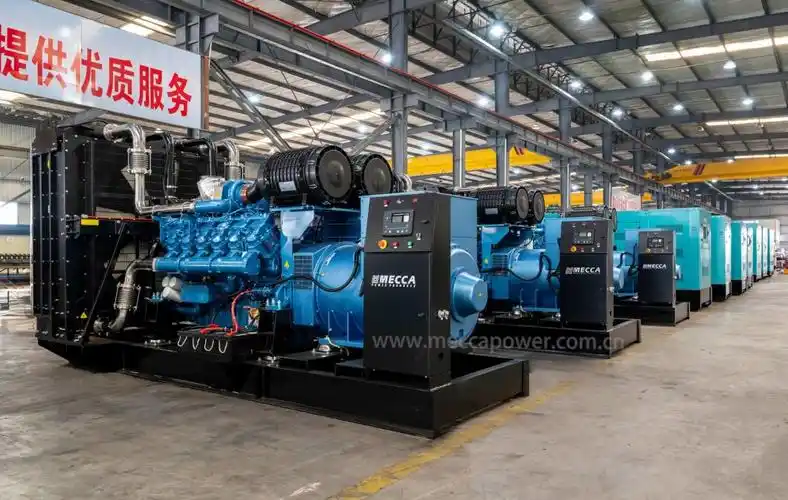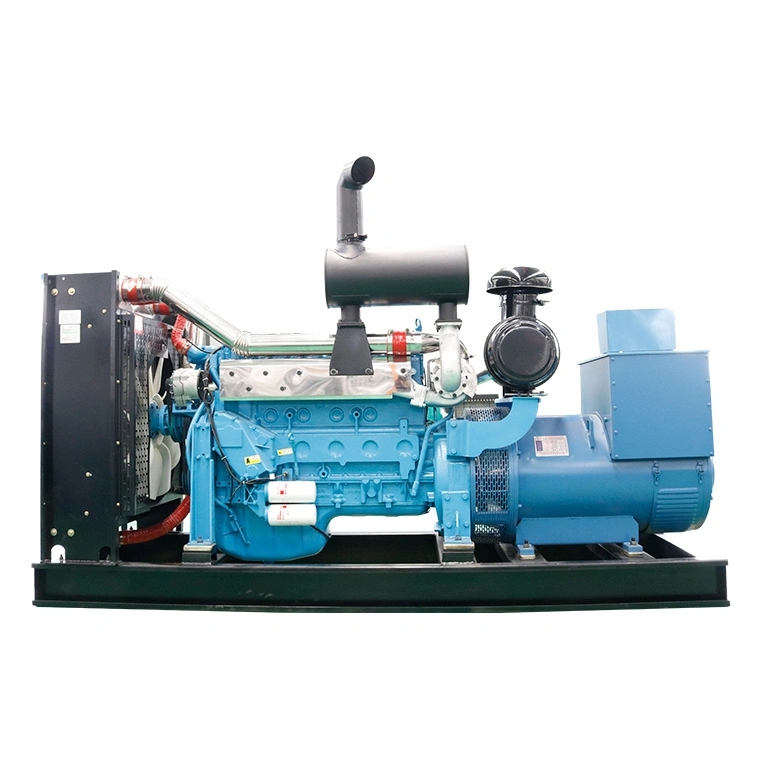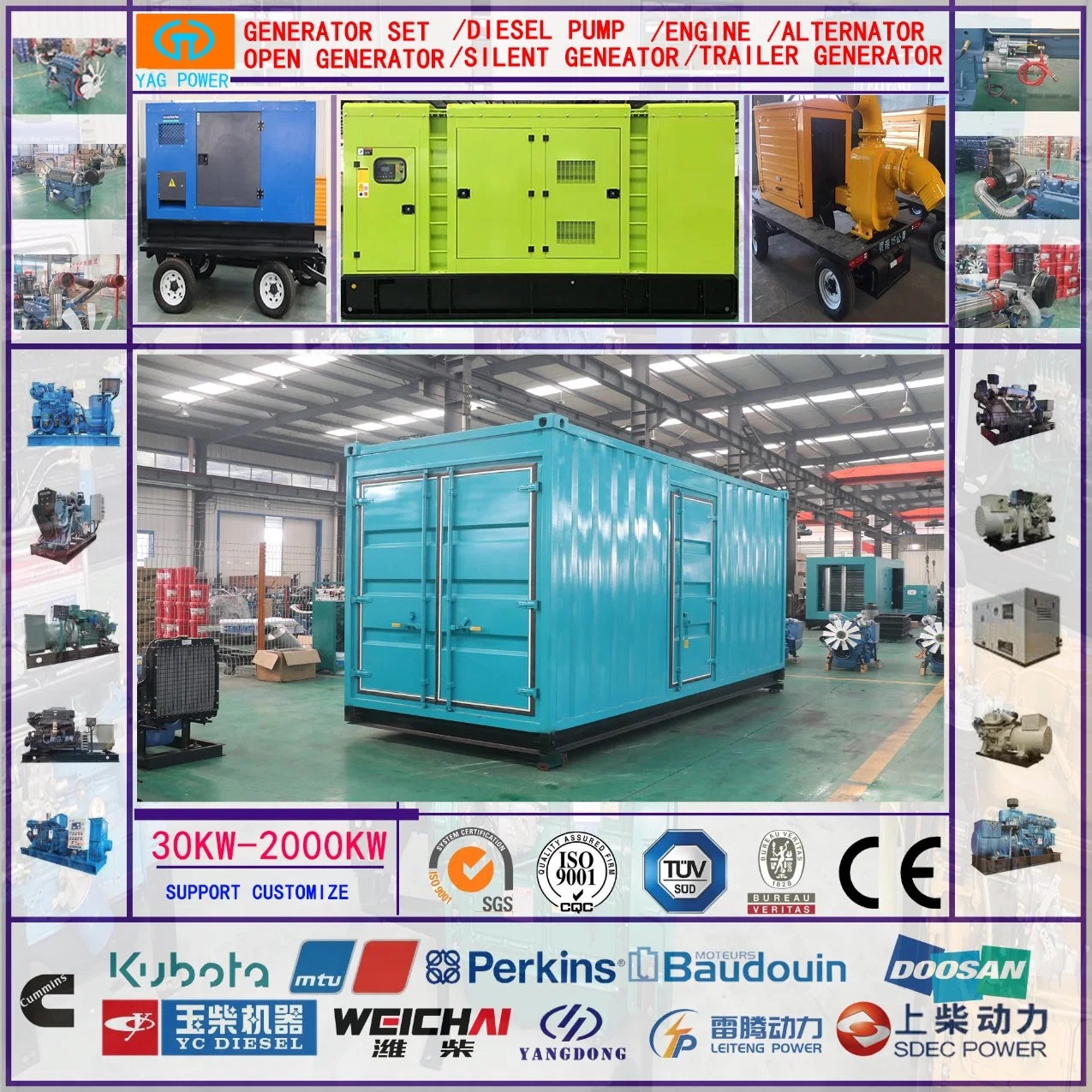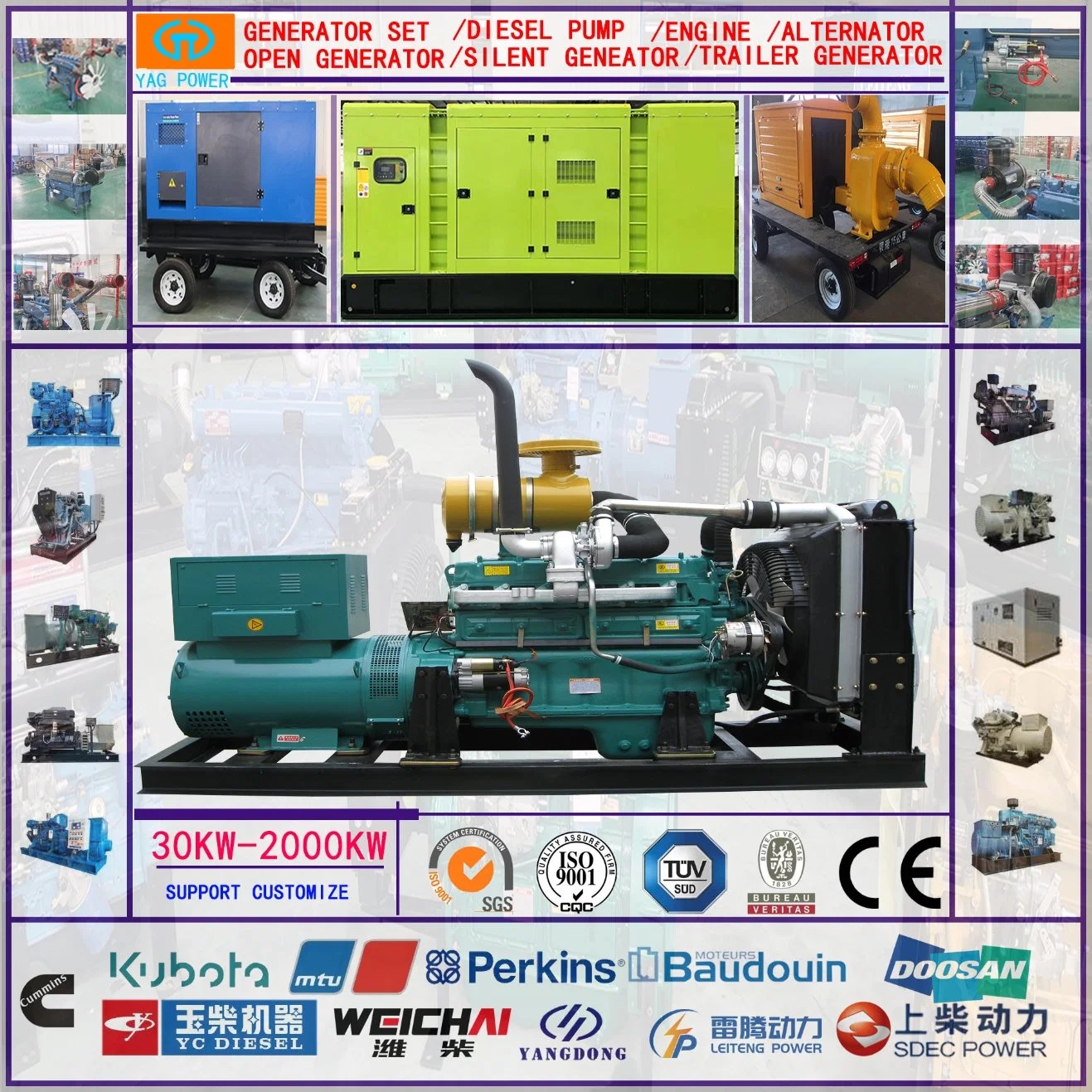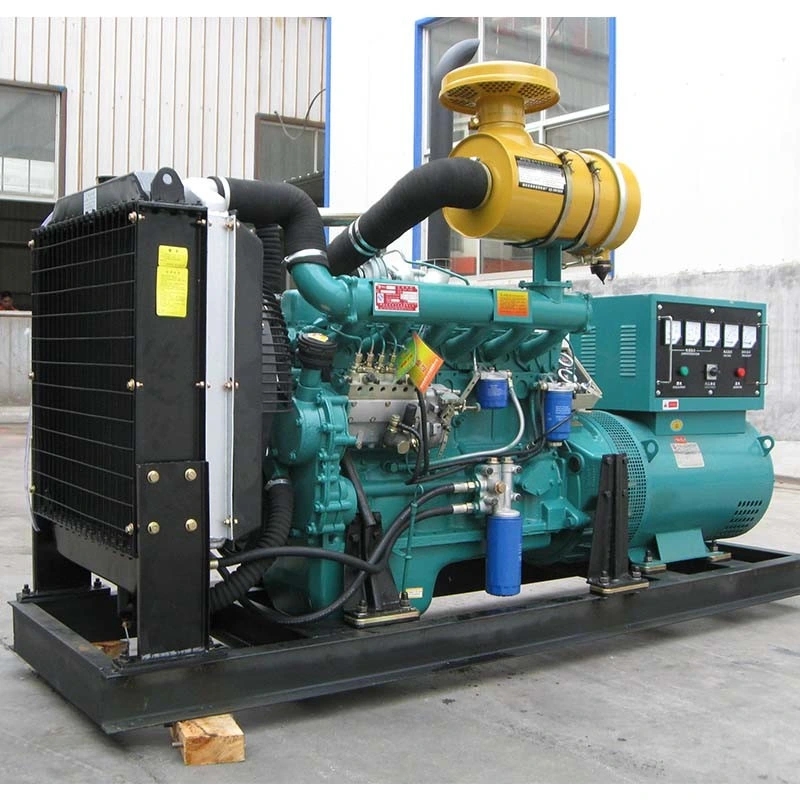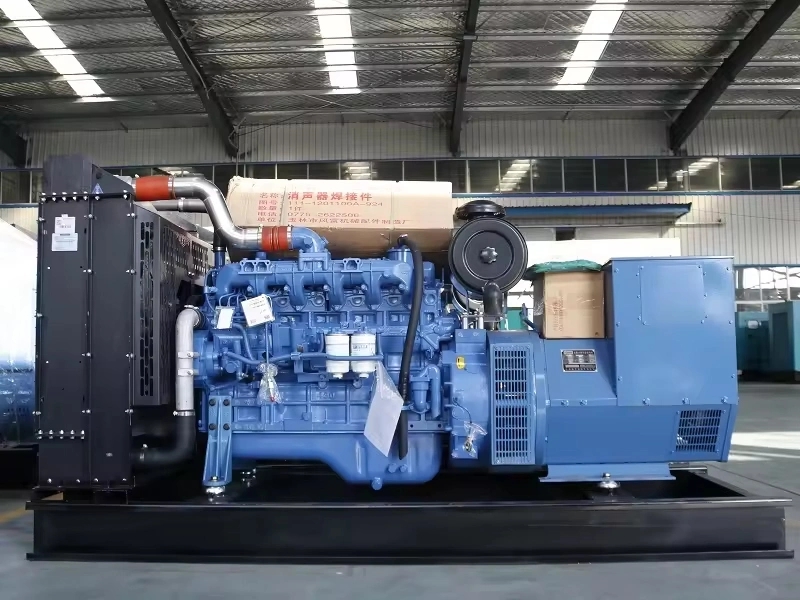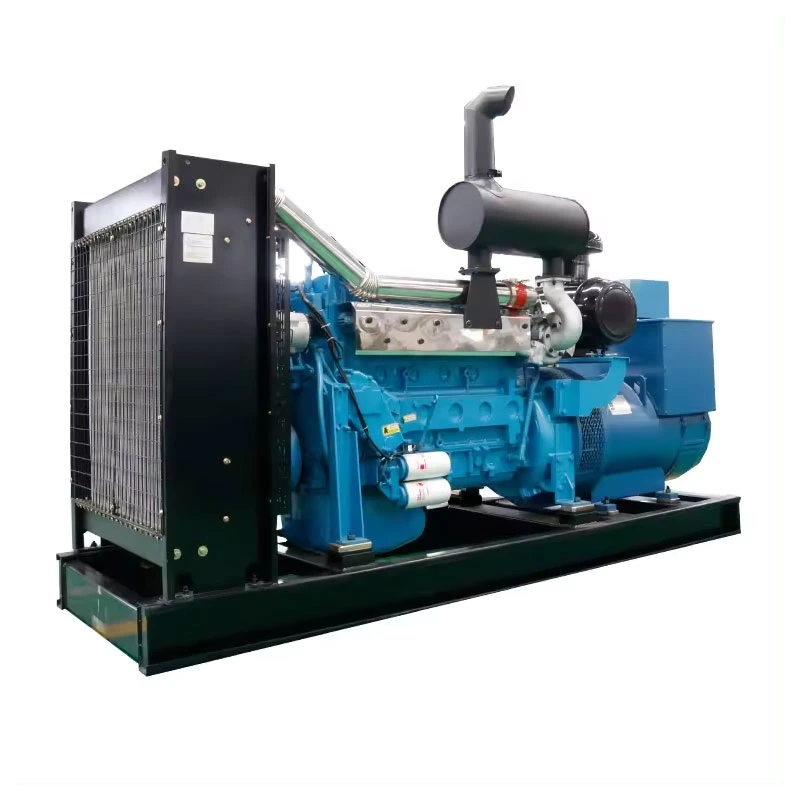Table of Contents
ToggleWhen it comes to power generation, especially in industrial and commercial settings, a 500kW diesel generator stands out as a reliable option. But what exactly is it, and why should you consider one? Let’s dive into the nitty-gritty of these powerful machines and explore everything you need to know.
What is a 500kW Diesel Generator?
A 500kW diesel generator is a robust power generation unit designed to produce 500 kilowatts of electrical power. These generators are typically used in settings where a reliable and continuous power supply is crucial. Think of them as the unsung heroes of the energy world, quietly humming away in the background, ready to spring into action when needed.

Key Features of 500kW Diesel Generators
These generators come packed with features that make them ideal for various applications. Here are some key characteristics:
- High Power Output: With a capacity of 500kW, these generators can power multiple heavy-duty machines or a large facility. Imagine a bustling factory floor where every machine needs to run simultaneously; a 500kW generator can handle that load with ease.
- Durability: Built to withstand harsh conditions, they often have a longer lifespan compared to their gasoline counterparts. This durability means fewer replacements and repairs, saving you money in the long run.
- Fuel Efficiency: Diesel engines are known for their fuel efficiency, making them a cost-effective choice in the long run. You can generate more power while spending less on fuel, which is a win-win situation for any business.
- Low Maintenance: While all generators require maintenance, diesel generators tend to need less frequent servicing. This means less downtime and more productivity for your operations.
How Does a Diesel Generator Work?
At its core, a diesel generator converts diesel fuel into mechanical energy, which is then transformed into electrical energy. The process involves several steps:
- Fuel Injection: Diesel fuel is injected into the combustion chamber.
- Compression: The air in the chamber is compressed, raising its temperature.
- Ignition: The high temperature ignites the fuel, causing an explosion that pushes the piston down.
- Power Generation: The movement of the piston turns the crankshaft, which is connected to the generator, producing electricity.
It’s a bit like a well-oiled machine—each part plays a crucial role in ensuring everything runs smoothly. Understanding this process can help you appreciate the engineering marvel that is a diesel generator.
Applications of 500kW Diesel Generators
So, where can you find these powerful generators in action? Let’s explore some common applications.
Industrial Uses
In industries like manufacturing, construction, and mining, a 500kW diesel generator can provide the necessary power to run heavy machinery and equipment. Imagine a construction site where power outages could halt progress; having a diesel generator on standby ensures that work continues uninterrupted.
For instance, in a manufacturing plant, a sudden power failure can lead to significant losses. A 500kW generator can keep the assembly line running, ensuring that production targets are met without delay.
Commercial Uses
Retail businesses, hospitals, and data centers often rely on these generators to maintain operations during power outages. For instance, a hospital needs to keep life-saving equipment running, and a 500kW generator can be a lifesaver—literally!
In a retail environment, especially during peak shopping seasons, power outages can lead to lost sales and unhappy customers. A reliable generator ensures that the lights stay on, the registers keep ringing, and the customers remain satisfied.
Emergency Backup Power
Natural disasters can strike at any moment, and having a reliable backup power source is essential. A 500kW diesel generator can provide the necessary power to keep homes and businesses running during emergencies, ensuring that you’re never left in the dark.
Think about it: during a storm, when the power goes out, having a generator means you can keep your refrigerator running, your lights on, and your devices charged. It’s peace of mind in a box!
Advantages of Using a 500kW Diesel Generator
Why should you consider investing in a 500kW diesel generator? Here are some compelling reasons.
Fuel Efficiency
Diesel engines are known for their superior fuel efficiency compared to gasoline engines. This means you can generate more power while spending less on fuel. It’s like getting more bang for your buck!
In a world where energy costs are constantly rising, having a fuel-efficient generator can significantly reduce operational costs. This efficiency is particularly beneficial for businesses that rely heavily on power, as it can lead to substantial savings over time.
Durability and Longevity
Diesel generators are built to last. With proper maintenance, they can run for thousands of hours without significant wear and tear. Think of them as the tortoises of the generator world—slow and steady wins the race!
This durability means that once you invest in a 500kW diesel generator, you’re likely to enjoy years of reliable service. It’s an investment that pays off in the long run, reducing the need for frequent replacements.
Choosing the Right 500kW Diesel Generator
Not all generators are created equal. Here’s what you need to consider when choosing the right one for your needs.
Factors to Consider
- Power Requirements: Assess your power needs to ensure the generator can handle your load. It’s essential to calculate the total wattage of the equipment you plan to run to avoid overloading the generator.
- Fuel Type: While diesel is the focus here, consider whether you want a dual-fuel option for flexibility. Some generators can run on both diesel and natural gas, providing you with more options depending on availability and cost.
- Noise Levels: Some generators can be quite loud, so consider your environment and choose accordingly. If you’re operating in a residential area or a noise-sensitive environment, look for models designed for quieter operation.
Top Brands in the Market
When it comes to reliability, certain brands have built a reputation for excellence. Some of the top names include:
- Caterpillar: Known for their robust construction and reliability, Caterpillar generators are a popular choice in various industries.
- Cummins: Offers a range of generators with advanced technology, ensuring efficiency and performance.
- Kohler: Renowned for their quiet operation and efficiency, Kohler generators are ideal for both commercial and residential use.
Maintenance Tips for Diesel Generators
To keep your generator running smoothly, regular maintenance is key. Here are some tips to ensure longevity and optimal performance.
Regular Checks and Servicing
Just like a car, your diesel generator needs regular check-ups to ensure it’s in top shape. Here’s what you should keep an eye on:
Oil Changes
Regularly check and change the oil to keep the engine lubricated. Oil is the lifeblood of any engine, and diesel generators are no exception. Over time, oil can become contaminated with dirt and debris, which can lead to engine wear.
- Frequency: It’s generally recommended to change the oil every 100 to 250 hours of operation, but always refer to the manufacturer’s guidelines for specific recommendations.
Fuel Filters
Replace fuel filters as needed to ensure a clean fuel supply. Dirty fuel filters can restrict fuel flow, leading to poor performance or even engine failure.
- Tip: Keep an eye on the fuel filter indicator (if available) and replace it when it shows signs of clogging.
Battery Maintenance
Check the battery regularly to avoid starting issues. A diesel generator relies on a battery to start, and if the battery is weak or dead, you’ll be left in the lurch.
- Maintenance: Clean the battery terminals and ensure they are tightly connected. Also, check the electrolyte levels if you have a lead-acid battery.
Troubleshooting Common Issues
Even the best generators can run into problems. Here are some common issues and how to troubleshoot them:
Generator Won’t Start
If your generator refuses to start, it can be frustrating. Here’s what to check:
- Fuel Supply: Ensure there’s enough diesel in the tank. It sounds simple, but it’s often overlooked!
- Battery Connections: Check the battery connections for corrosion or looseness.
- Starter Motor: If the starter motor is faulty, it may need to be replaced.
Overheating
Overheating can lead to severe engine damage, so it’s crucial to address this issue immediately. Here’s what to do:
- Coolant Levels: Ensure the coolant levels are adequate. Low coolant can cause the engine to overheat.
- Radiator Blockage: Check for any blockages in the radiator that could restrict airflow.
- Fan Operation: Make sure the cooling fan is functioning correctly.
Low Power Output
If your generator isn’t producing enough power, it can disrupt your operations. Here are some potential causes:
- Faulty Fuel Filter: A clogged fuel filter can restrict fuel flow, leading to reduced power output.
- Load Issues: Ensure that the total load does not exceed the generator’s capacity. Overloading can cause the generator to struggle.
- Engine Problems: If the engine isn’t running efficiently, it may need servicing or repairs.
Conclusion: Is a 500kW Diesel Generator Right for You?
In conclusion, a 500kW diesel generator can be a valuable asset for businesses and industries that require reliable power. With their fuel efficiency, durability, and versatility, they can meet a variety of power needs. However, it’s essential to assess your specific requirements and consider factors like maintenance and brand reputation before making a purchase.
Final Thoughts
So, are you ready to power up your operations with a 500kW diesel generator? Whether you’re looking for backup power or a primary source, these generators can provide the reliability you need. Don’t let power outages hold you back—invest in a diesel generator and keep your operations running smoothly!
Making the Decision
Before you make a decision, consider the following questions:
- What are your power needs? Assess your current and future power requirements to ensure the generator can handle your load.
- How often will you use it? If you need a generator for occasional use, you might consider renting instead of buying.
- What’s your budget? Diesel generators can be a significant investment, so ensure you have a clear budget in mind.
In Summary
A 500kW diesel generator is not just a piece of equipment; it’s a lifeline for many businesses. With the right maintenance and care, it can serve you well for years to come. So, take the plunge, do your research, and find the perfect generator that meets your needs. After all, in the world of power generation, being prepared is half the battle!




